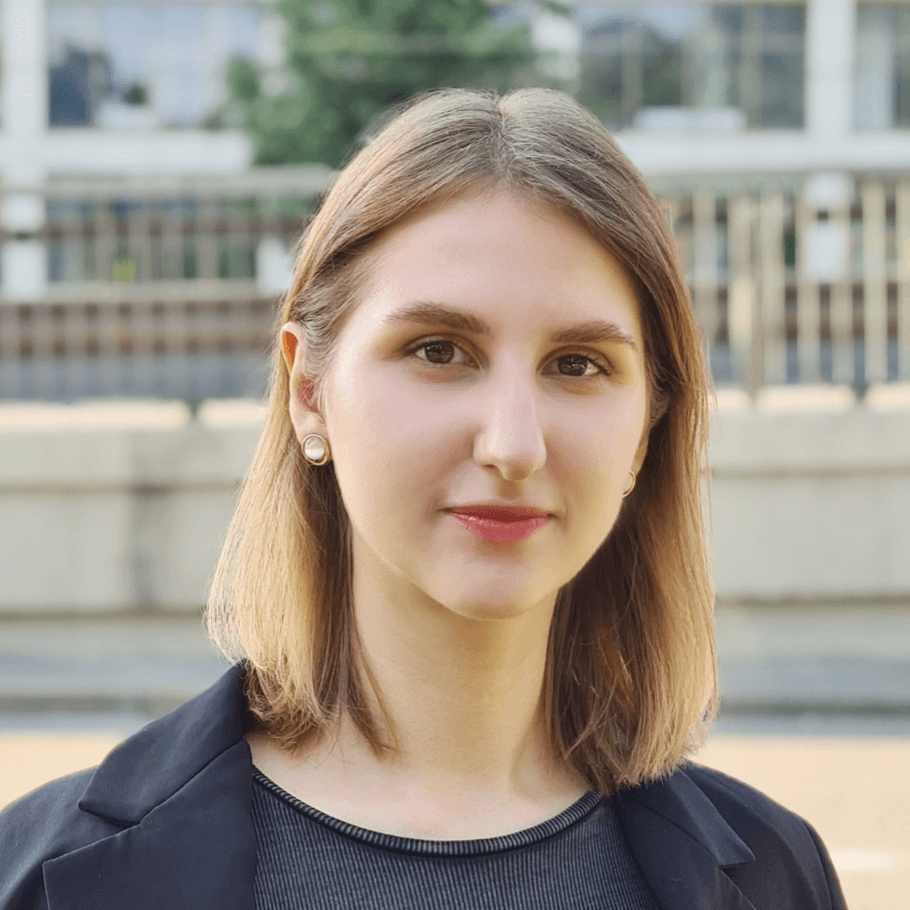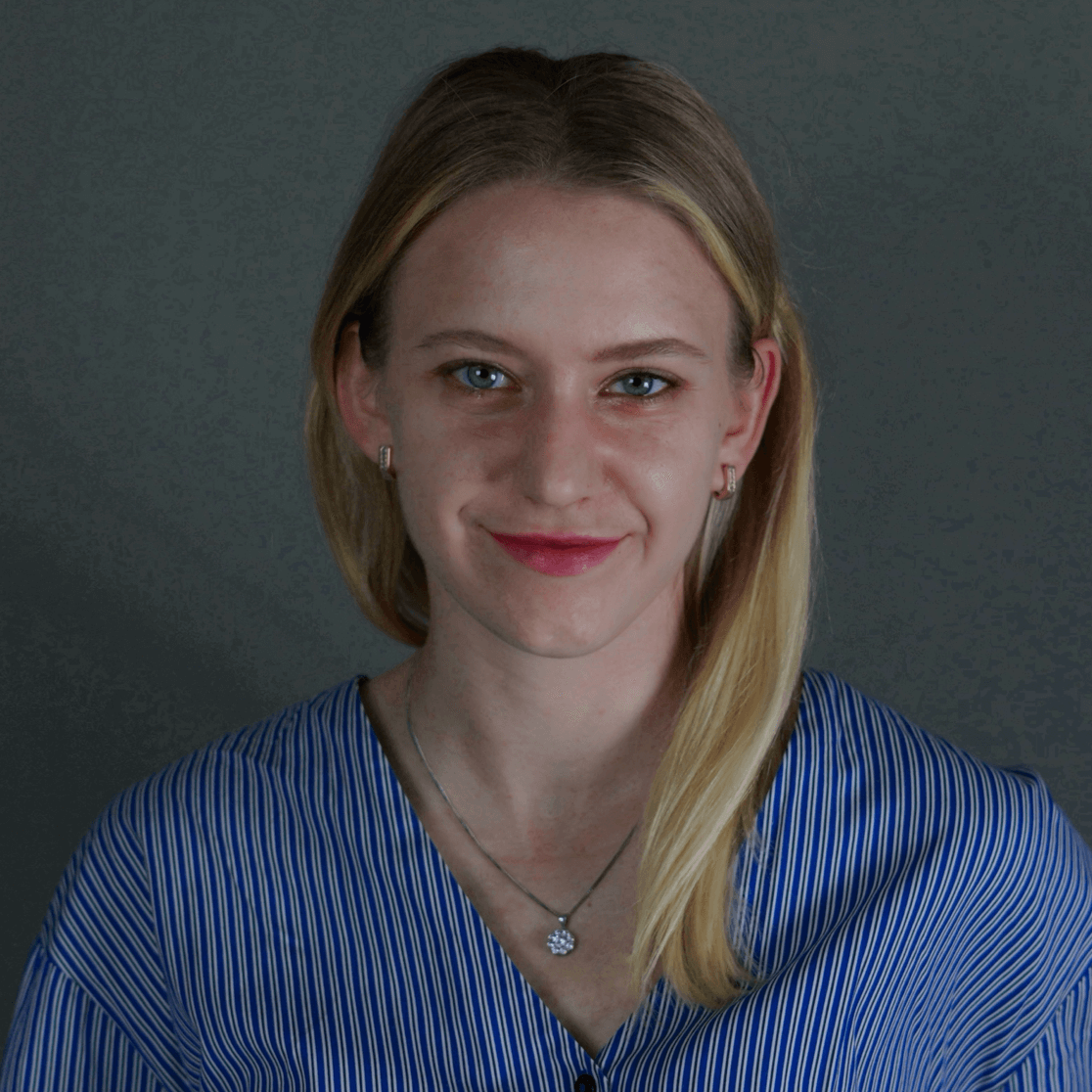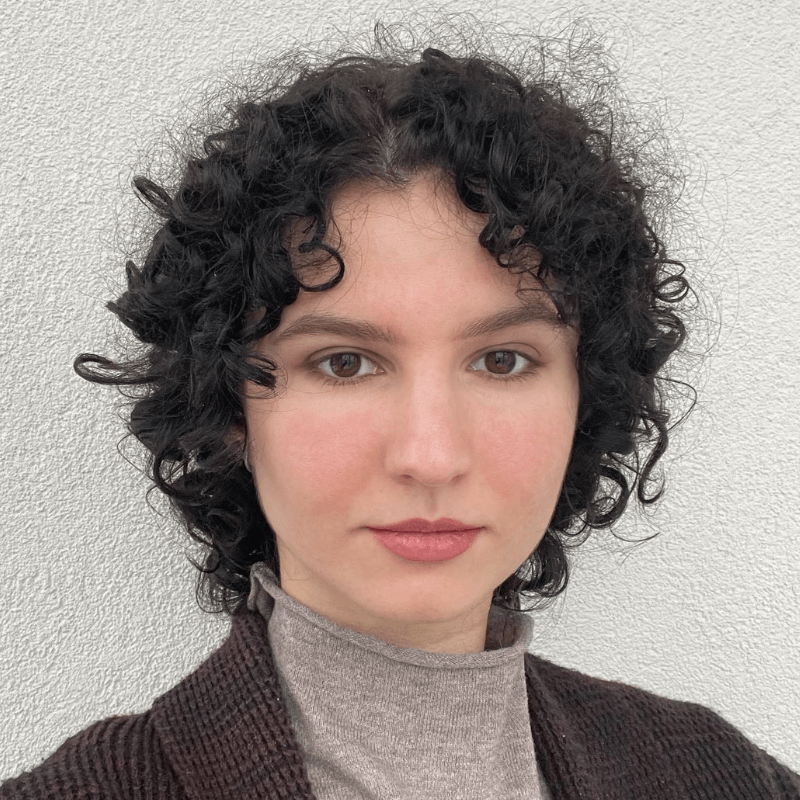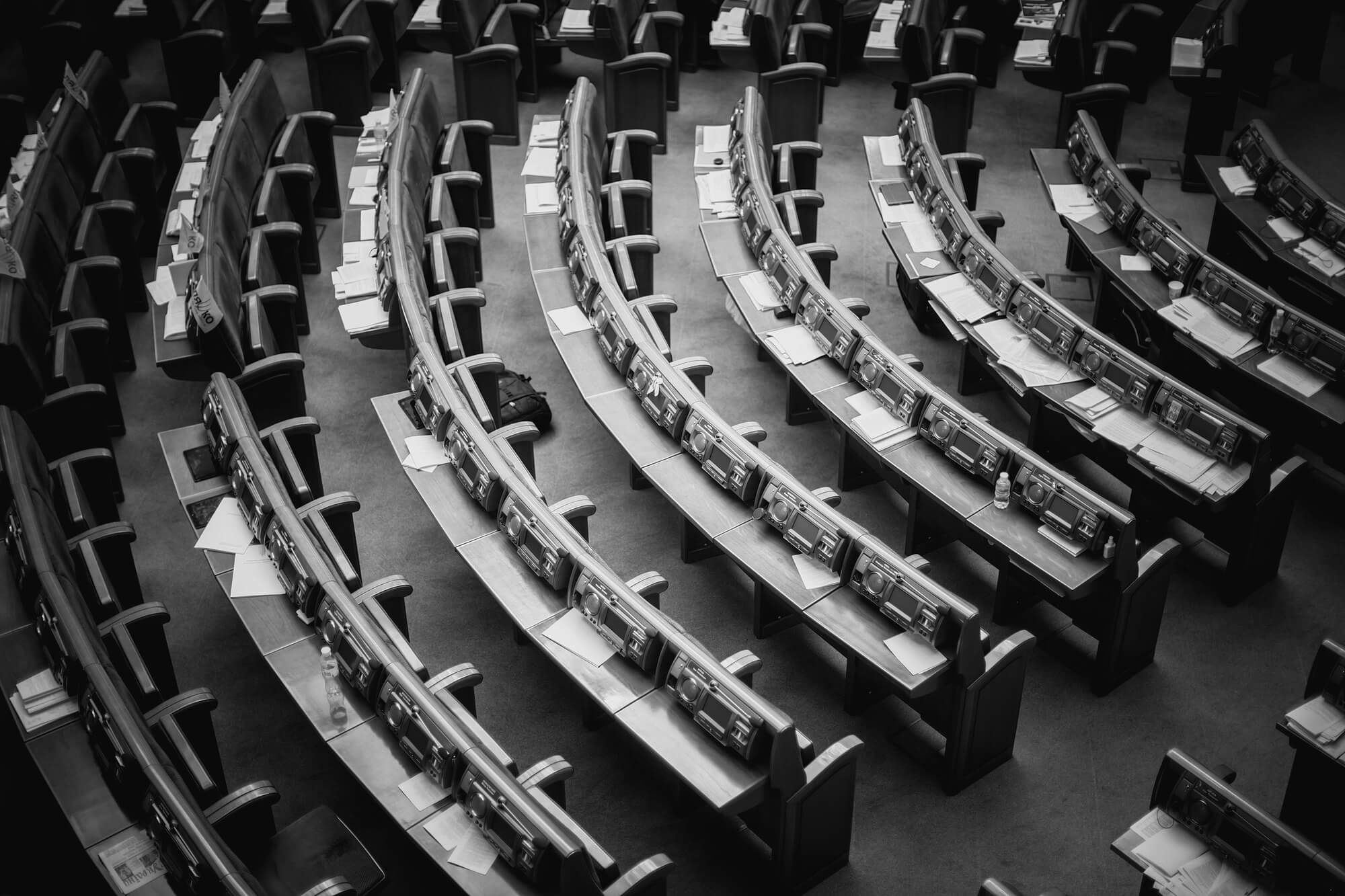At the beginning of 2022, politicians refrained from critical statements and political campaigning. However, the situation has now changed. Whether preparations for elections — discussed again at the end of 2024 — are underway is impossible to verify. What can be fact-checked, though, are the statements made by Ukrainian politicians. In 2024, they repeatedly lied and manipulated topics such as war, mobilization, negotiations, electricity, and derussification. A fact-check of their claims and a wishlist for 2025 are in VoxCheck’s new article.
The end of last year and the beginning of this one seem like the right time to take stock. The main, albeit obvious, disappointment of 2024 is that politicians continue to lie and manipulate. Another disappointment is that those promoting pro-Russian narratives in Ukraine still hold parliamentary mandates.
Some MPs (Dubinskyi, Dmytruk), despite open criminal cases, still hold the status of deputies and continue to spread fakes. These MPs are often the ones attacking initiatives aimed at distancing Ukraine from Russia (banning the pro-Russian church, renaming streets, Ukrainization, etc.). However, there is some positive news: despite their efforts, relevant laws have been passed. Derussification, although facing obstacles, continues.
A third issue is that MPs, regardless of their political affiliation, continue to give interviews to pro-Russian channels, thereby legitimizing them. This year, for example, it happened with the YouTube project of Lana Shevchuk, a former host on Medvedchuk’s channels. Her channel and quotes from politicians have been analyzed previously in this article.
We fact-check selected statements by politicians in 2024. Their claims were sourced from social media, interviews, speeches in the Rada, and press conferences. Not all false statements were included in the analysis, but a few notable ones on war, mobilization, negotiations, electricity, and derussification were chosen. These are some of the most important topics frequently manipulated by politicians.
Participation in the war
The longer the full-scale invasion lasts, the more “incredible facts” emerge about the activities of politicians or their colleagues in the early days of the large-scale war. Two quotes — by Zelenskyi and Poroshenko — are particularly illustrative in this context.
Volodymyr Zelenskyi, 27/08/2024
No verdict
“The United States and everyone know this. Oleh Tatarov, along with Vasyl Maliuk, killed Chechens in Ukraine, in Kyiv, while you weren’t here. Is that not enough? Dismiss him (Tatarov — ed.) so that the Russians can kill him?”
The President mentioned Tatarov in response to a question about the effectiveness of the President’s Office team. Ukrainians mostly reacted to the statement with memes. But seriously — can this be verified? Both yes and no. It is easier to verify Vasyl Maliuk’s role. Since February 28, 2022, he has served as Deputy Head of the Security Service of Ukraine, where he focused on creating a special unit for sabotage and counter-sabotage operations.
Tatarov’s case is more complicated. On the President’s Office website, mentions of him are rare: a brief biography, his title (Deputy Head of the President’s Office), and his area of responsibility (law enforcement). His official duties at the time of appointment were described as follows: “…forming state policy in the field of law enforcement activities, providing expert-analytical support for the work of the President’s Office of Ukraine, ensuring national security guarantees in the fields of law enforcement, anti-corruption, and human rights protection.” During his tenure, the site features only a few press releases about meetings on law enforcement issues. Tatarov himself has not publicly commented on his activities.
What is known about Tatarov’s political influence comes from journalistic investigations and insider reports. However, there is no mention of his participation in “killing Chechens” or other defense measures. In other words, there is no evidence regarding the “Chechens», but there is also nothing to refute the claim — it’s unknown what Tatarov was doing in the early days of the invasion.
Petro Poroshenko also mentioned his military achievements this year. At the same time, he accused the authorities of completely fleeing the capital in the first days.
Petro Poroshenko, 18/10/2024
Manipulation
“I was here, with a weapon in hand, while the entire government fled Kyiv. We formed battalions, and within the framework of the 206th Battalion, we ensured evacuations from Bucha, Hostomel, Irpin, set up checkpoints, distributed weapons, and ultimately defended Kyiv from Russian invaders.”
Interestingly, in an interview with Ukrainska Pravda published in February 2023, the claim that the government fled was only speculation. Poroshenko mentioned the declaration of martial law and mobilization: “There was no discussion. They came in, voted, and left. And it was done. After that, I think 70-80% fled.”
In reality, during the first days of the full-scale war, at least the President, Prime Minister, and Speaker of the Rada did not leave Kyiv. They continued to work, hold meetings, briefings, and communicate with Western partners. Most MPs were in Ukraine on February 24, 2022. However, on the eve of the invasion, about ten MPs left the country and did not return. How many moved from the capital to western Ukraine remains unknown.
On February 24, Poroshenko was indeed in Kyiv. However, there is no confirmation that he “defended Kyiv with a weapon in hand”. According to the politician himself, he attended a Rada session in the first hours. That same day, he gave media interviews and called on Kyiv residents to join the army.
Moreover, the politician had not previously mentioned personally defending the city. On the first day of the invasion, European Solidarity supported the Kyiv 206th Territorial Defense Battalion. According to the MP, he and the unit set up checkpoints in the capital, and the politician provided buses for evacuating civilians from combat zones. In the following days, he visited checkpoints of the 206th Territorial Defense Battalion, delivered weapons and medical kits, and addressed Western leaders.
Poroshenko’s foundation continues to support the Armed Forces. According to him, since February 24, 2022, he and his family have directed over 6.5 billion UAH of personal funds to aid the military. Unlike the Come Back Alive foundation, Poroshenko’s foundation does not have detailed reports but does offer photo and video evidence of aid delivery.
However, supporting the military does not mean “defending Kyiv with a weapon in hand”. Both activities are undoubtedly important, but they are not equivalent. Such statements equate volunteering with direct combat participation, diminishing the efforts of the Armed Forces.
Mobilization
Mobilization and manipulation went hand in hand this year. Even if Ukrainian politicians did not directly echo Russian propaganda, panic-inducing statements were present. For example, in December, Dmytro Razumkov claimed that the parliament had allegedly approved the mobilization of women.
Dmytro Razumkov, 03/12/2024
False
“Dear colleagues, you have just voted for Bill No. 12076. Congratulations, you have taken the first step toward mobilizing women. Because if a woman undergoes basic general military training, she automatically registers for military service, and from then on, even if she is not a medic, she can be mobilized according to the current legislation.”
On December 3, 2024, the Verkhovna Rada adopted Bill No. 12076 in its first reading. The bill does propose that women willing to undergo basic military training may register for military service. However, registration does not equal mobilization. Currently, women in Ukraine can only join the Defense Forces voluntarily. According to the law “On Military Duty and Military Service“: “Women registered for military service may be called to active military duty or involved in defense-related tasks during wartime voluntarily.“
This applies even to women legally required to register (such as medical or pharmaceutical workers). They hold the status of those liable for military service, but there is no provision for their forced mobilization. Publicly available sources also lack any evidence that female medical workers have ever been forcibly mobilized.
Another panic statement is that allegedly the government planned to use the “ePidtrymka” program to identify men avoiding military service.
Dmytro Razumkov, 04/12/2024
False
“‘Vova’s thousand’ is not just a PR move; as representatives of the majority say, it is an opportunity to identify draft dodgers. Yesterday, a representative of the ‘Servant of the People’ stated that Zelenskyi’s thousand is a mechanism to identify millions of dodgers. So is this your social assistance, or are you using it to find draft dodgers?”
Olha Vasylevska-Smahliuk, 03/12/2024
False
“We have a million men hiding somewhere. They haven’t left the country, they’re not disabled, and they’re not reserved. These are people who, hypothetically, are evading their constitutional duty to defend the homeland. For instance, if a family has two men subject to mobilization and two women, they qualify for 4,000 UAH. Naturally, raising the sum above 1,000 UAH to, say, 3,000 or 4,000 per family could incentivize men to register because 4,000 is better than 2,000.”
The assumption about “identifying draft dodgers” was first voiced by Vasylevska-Smahliuk from “Servant of the People”, and Razumkov later presented it as a fact.
However, the “Winter ePidtrymka” program is not linked to mobilization. To receive the thousand hryvnias, one needs the “Diia” app and a bank account with a partner bank. When applying for the “National Cashback” card, no military registration documents or contact details are required.
Consent must be given to share information about payment transactions. The government requires data on purchases or returns involving items covered by the “National Cashback” program. This allows them to see amounts eligible for cashback.
If the “National Cashback” card is only used to claim the thousand hryvnias, one could simply register the card, withdraw the funds, and close the account without using the cashback feature.
Negotiations
Against the backdrop of war fatigue and the challenging frontline situation, Russians intensified speculation about peace talks. Their goal remains unchanged: to make Ukrainians believe resistance is futile, cease defending themselves, and agree to “peace” on Russia’s terms.
However, propagandist statements were not only made by the enemy but also by figures Ukrainians should not have heard them from — namely, MPs. This became particularly evident following Russia’s massive missile attack on Ukraine on July 8. The attack caused severe damage to the “Ohmatdyt” Children’s Hospital. Instead of condemning the crime and helping victims, some MPs called for a ceasefire with Russia on any terms.
For example, Artem Dmytruk and Yevhenii Shevchenko, members of the “Ukraine Restoration” deputy group. Dmytruk later fled abroad and is facing charges of assaulting a soldier and a law enforcement officer, as well as illegal border crossing. Shevchenko has been accused of treason and remains in custody. Both politicians have long promoted pro-Russian narratives.
Artem Dmytruk, 09/07/2024
Manipulation
“Yesterday’s tragedy is horrific; I cried in pain while walking in the procession. My soul breaks for what we are losing! Therefore, we must do everything possible to end the war at all levels, by any means! Ending the war will be the VICTORY!”
Yevhenii Shevchenko, 09/07/2024
Manipulation
“This must all end to save the lives of other citizens, who are already potentially targeted by Russian missiles or debris from air defense strikes in the future. Otherwise, this will never end.”
What is manipulative about such calls for peace at any cost? They focus on Ukraine’s actions (“we must do…”) while ignoring what Russia must do to achieve peace. This framing implies Ukraine started the war and that its end depends solely on Ukraine. In reality, Russia is the aggressor, and the main responsibility for continued hostilities lies with it.
Furthermore, proponents of such “peace calls” fail to acknowledge that Russia is unwilling to compromise during negotiations. Instead, it demands Ukraine to sacrifice its independence and sovereignty.
Currently, Dmytruk consistently spreads the Russian narrative that the war benefits Ukraine’s military-political leadership. Earlier, Heorhii Mazurashu, an MP from “Servant of the People”, voiced a similar message.
Artem Dmytruk, 17/12/2024
Manipulation
“Zelenskyi is doing everything possible to ensure that peace talks and peace itself have no chance of existing. For them, peace means the end. That’s why they are doing everything to prolong the war and remain in a pool of Ukrainian blood with green bills in their hands.”
Heorhii Mazurashu, 03/09/2024
False
“This damned war has brought so many problems and tragedies to our country. It turns out the war is obviously profitable for the military leadership. […] After 2022, hundreds of billions were allocated. It seems they simply benefit from having access to this money. […] Politically, it also benefits the leadership as it allows them to remain in power indefinitely.”
The Ukrainian state has repeatedly stated its desire to end hostilities. For example, Ukraine presented a Peace Formula and initiated a Peace Summit, aiming for international support and pressure on Russia to establish a just peace. However, due to the difficult frontline situation and insufficient international support, forcing Russia into peace is unlikely in the near future.
At the same time, it cannot be said that Ukraine does not express a desire for peace or that its leadership is “profiting” from the war. Russia started the invasion, and Ukraine’s demands — deoccupation of all territories, punishment of criminals, reparations, etc.—are justified.
The Kremlin, on the other hand, consistently rejects any efforts to end the war, insisting on “considering the situation on the ground.” This implies Ukraine abandoning temporarily occupied territories in exchange for a ceasefire (without security guarantees or reparations) and a commitment to neutrality and non-alignment with military alliances. There are no guarantees that Putin will not continue his aggression even after these concessions. Agreeing to end the war on Kremlin terms would mean capitulation and loss of statehood.
Thus, while Ukraine’s military-political leadership has tried to end hostilities on its terms, it cannot agree to Russia’s ultimatums. Currently, neither Ukraine nor Russia is willing to abandon their fundamental positions.
Electricity
Since 2022, Ukraine has lost at least 30 GW of generation capacity due to occupation and shelling. Against this backdrop, the government raised electricity tariffs from 2.64 UAH to 4.32 UAH/kWh starting June 1.
Several MPs criticized the increase, claiming the actual cost of 1 kWh was significantly lower than the new tariff. Their estimates varied: Dubinskyi claimed the cost was 0.54 UAH/kWh, while Tymoshenko stated it was 0.97 UAH/kWh.
Oleksandr Dubinskyi, 05/06/2024
False
“90% of the country’s electricity production today is provided by the state-owned Energoatom, which will receive all the superprofits from the tariff increase. The word ‘superprofits’ is no accident here – the cost of nuclear generation of 1 kWh = 0.54 UAH.”
Yuliia Tymoshenko, 11/06/2024
False
“I argue that the cost of one kilowatt for households does not exceed… one hryvnia. To be exact – 0.97 UAH. There were no objective grounds for raising tariffs even to 4.32 UAH.”
In reality, electricity does not cost a penny, and the population cannot pay prices that are multiple times lower than the actual cost. As of June 2024, the production cost of 1 kWh at nuclear power plants, including VAT, is 1.7 UAH. However, production costs are only part of the total electricity cost.
The price of a product or service also includes distribution costs and other expenses necessary for its sale. For electricity, this involves distribution across regions, transmission via Ukrenergo’s networks, and delivery to the end consumer. Additionally, a 20% VAT is applied. When all factors are accounted for, the total is even higher than the current tariff of 4.32 UAH.
Consumers do not pay the market price for electricity. The difference between the market price and the cost for households is compensated by Energoatom and Ukrhydroenergo through the PSO (public service obligation) procedure. These companies are required to supply energy to households at fixed prices and offset the difference between the fixed and market prices for other market participants.
Derussification
In 2024, two key events strengthened Ukraine’s national security and culturally distanced the country from Russia — the law banning the pro-Russian church and the decolonization law.
Pro-Russian MPs frequently spread fakes and manipulations about these laws. A notable example is Yurii Boiko’s recent statement, where he compiled almost the entire “collection” of such myths.
Yurii Boiko, 14/12/2024
False
“A few years ago, we witnessed how monuments to Columbus, the discoverer of America, were demolished in America itself. It seems our radicals have taken the same course and started demolishing monuments across the country, renaming cities, banning people from speaking their native language, and forbidding the church they want to attend. And now we see these movements continue, and violence against people persists.”
Similarly, Dmytruk makes multiple claims about the Ukrainian Orthodox Church of the Moscow Patriarchate (UOC-MP), substituting concepts and claiming that banning the church would mean banning Orthodox Christianity or persecuting millions of Orthodox believers nationwide.
Artem Dmytruk, 19/08/2024
False
“And what is more important, after the law is passed, over 6 million believers will find themselves outside the law, which will seriously destabilize society and cause many problems.”
Traditional claims about “humiliating Russian speakers” also periodically resurface, not just from former Opposition Platform — For Life MPs.
Anna Skorokhod, 03/10/2024
Manipulation
“If you want people to learn Ukrainian, I’m all for it, right. But not by force! I fully support teaching Ukrainian in schools and kindergartens. But why forbid people from speaking?”
In reality, Ukraine does not discriminate against its citizens but is removing Russian influence and returning to its own traditions. Let’s break it down step by step.
In the country, monuments are being demolished not arbitrarily, but those dedicated to Russian and Soviet figures associated with imperial policies. Toponyms are being renamed to honor Ukrainian figures, often restoring historical names or honoring contemporary heroes.
Moreover, this is not done forcibly. Decisions on renaming are made at the local level, and the new name is approved collectively during public discussions. Each citizen has the opportunity to propose their own name for renaming. We have analyzed fakes and manipulations about derussification in more detail in this article.
Claims about the persecution of UOC-MP believers are also false. Ukrainians are not restricted in choosing which faith to practice or which churches to attend. The potential ban applies only to legal entities — pro-Russian churches. The UOC-MP is a structural unit of the ROC, and some of its representatives have ties to Russia.
Ukrainian legislation does not include punishments for practicing a particular religion or belonging to a specific religious organization. In other words, priests or believers are not arrested merely for being part of the UOC-MP. They, like anyone else, are detained only if they break the law. For example, the Security Service of Ukraine has opened criminal cases against priests accused of collaborationism, treason, aiding the aggressor state, or justifying Russian aggression.
And lastly — no one prohibits the use of Russian in private conversations. The language law regulates only the public sphere. People are free to speak any language in their everyday lives. Private communication is not governed by the law. This is evidenced by the deputies themselves (Boiko, Skorokhod) — the above statements were made in Russian.
Another popular narrative about renaming streets and cities is that “this is not the right time.” Allegedly, decolonization should either be abandoned or at least postponed until after the war, as there are more pressing issues.
Maksym Buzhanskyi, 28/11/2024
No verdict
“When Russia unleashed its full missile power on Western Ukraine, striking it with missile after missile for several hours, targeting civilian infrastructure, approaching a local resident to suggest renaming something would be a death sentence — they would simply kill you, and they would be right. So why is it considered acceptable to bring up renaming with residents of the eastern part of the country, who experience such attacks almost daily and face the full brunt of the Russian army? Why would anyone think that’s a good idea?”
But it is timely. Even from the perspective of practical feasibility, renaming does not require significant resources. According to Transparency International Ukraine, in 2022–2023, approximately 14 million UAH were spent from local budgets across five Ukrainian cities to produce nearly 10,000 street name plaques. The highest expenditure during this period was in Dnipro, where the cost of new plaques accounted for only 0.045% of the city’s total budget for those two years. In several cities, plaques have not yet been updated, mainly due to a lack of funds or the redirection of resources to address issues caused by the war.
Moreover, there is public demand for renaming. On October 25, 2024, the Ukrainian Institute of National Memory published a survey on national memory policy. Specifically, 77% of respondents in 2024 (compared to 71.6% in 2023) supported renaming populated areas and streets named after Soviet or communist figures. A similar trend is observed with names honoring political or military figures from the Russian Empire: 74.7% approved such changes in 2024 (up from 71.5% in 2023). As for renaming cities and streets named after figures of Russian culture, 65.6% supported the initiative in 2024, compared to 59% in 2023.
Wishlist?
Christmas and New Year have passed, so it’s probably too late for wish lists. However, distinguishing truth from manipulation and lies is something we must do not only during holidays. Voters must ensure that politicians:
- Appeal to facts, not emotions.
- Verify these facts. Minor mistakes like saying “The caravan barks, and the dog moves on” are forgivable. However, deliberately distorting figures to manipulate the audience or repeating pro-Russian narratives is unacceptable.
- Admit their mistakes. Yurii Boiko apologized for the video about “radicals tearing down monuments” but did not retract his words. In a comment to BBC Ukraine, he even confirmed that his opinion had not changed. This is an example of improper acknowledgment of mistakes.
- Avoid proposing quick and easy solutions that simply do not exist, especially during wartime.
- Stay away from pro-Russian channels (such as Lana Shevchuk’s) and avoid legitimizing them in the eyes of the audience.
- Refrain from downplaying the contributions of the military in their statements.
Photo: depositphotos.com/ua
Attention
The authors do not work for, consult to, own shares in or receive funding from any company or organization that would benefit from this article, and have no relevant affiliations





